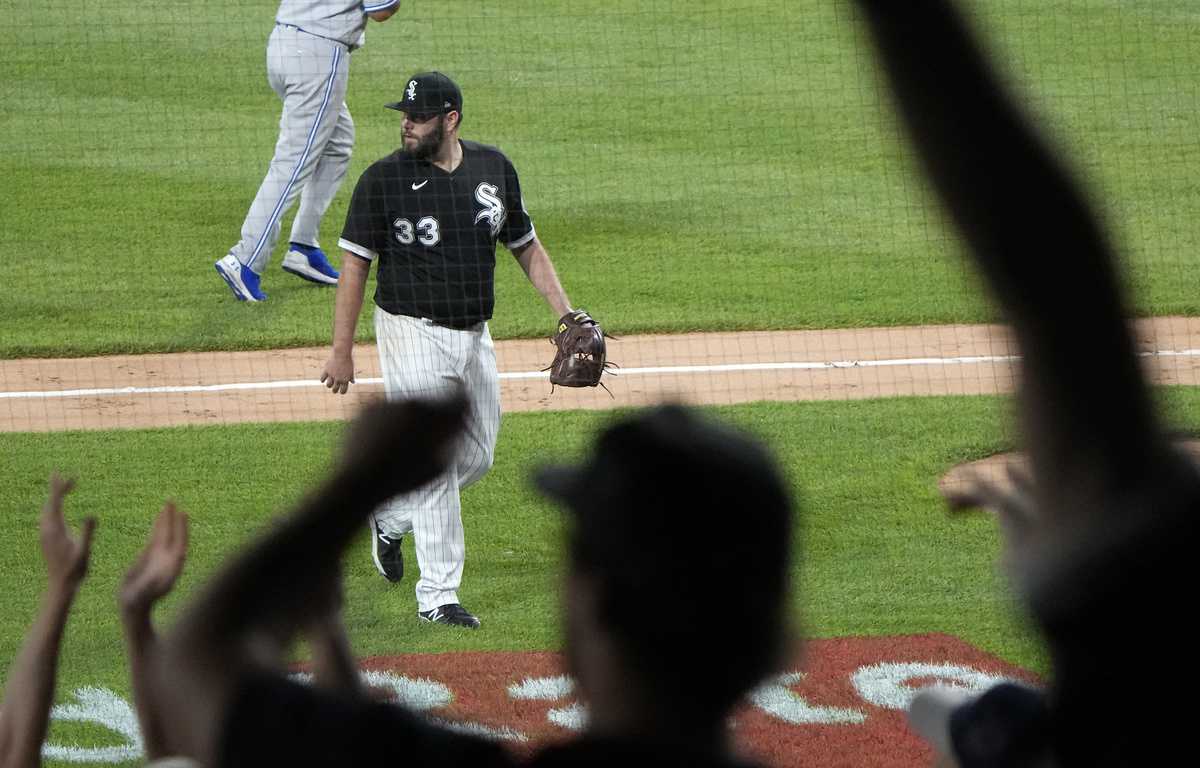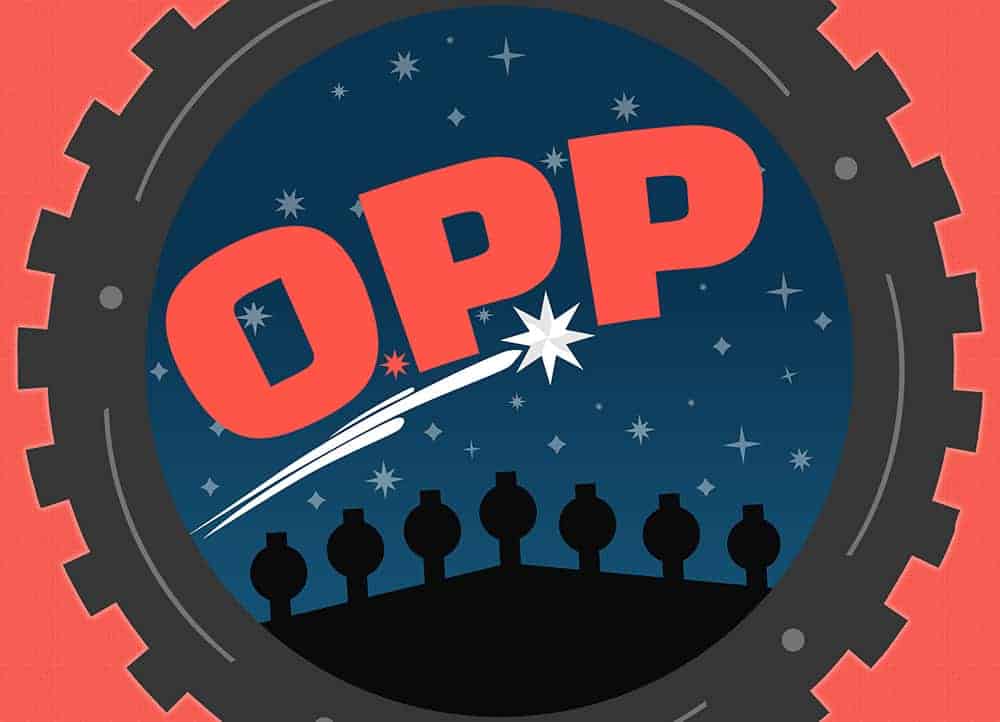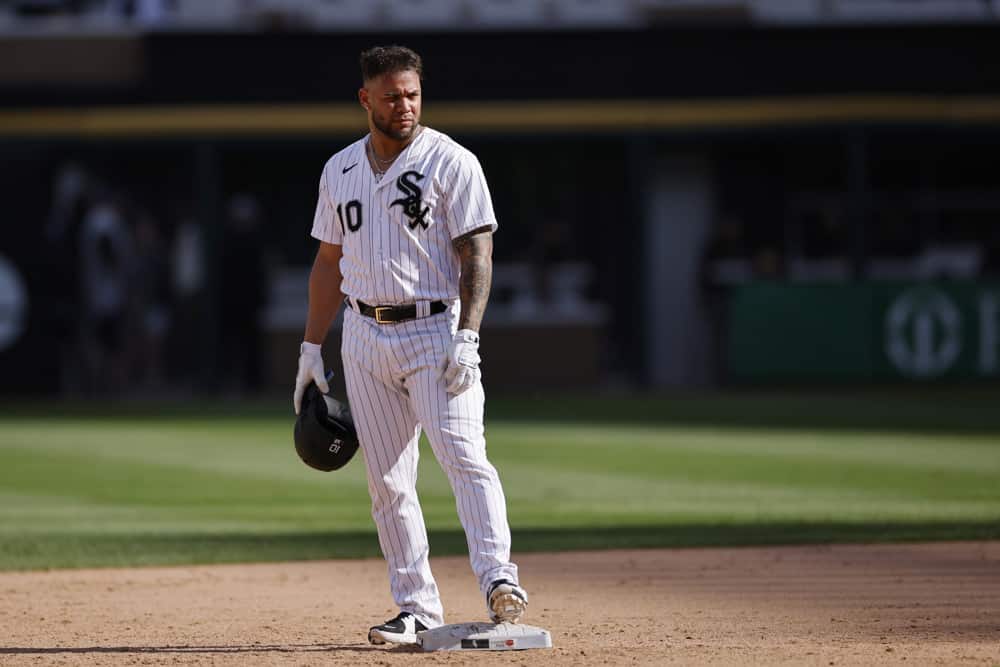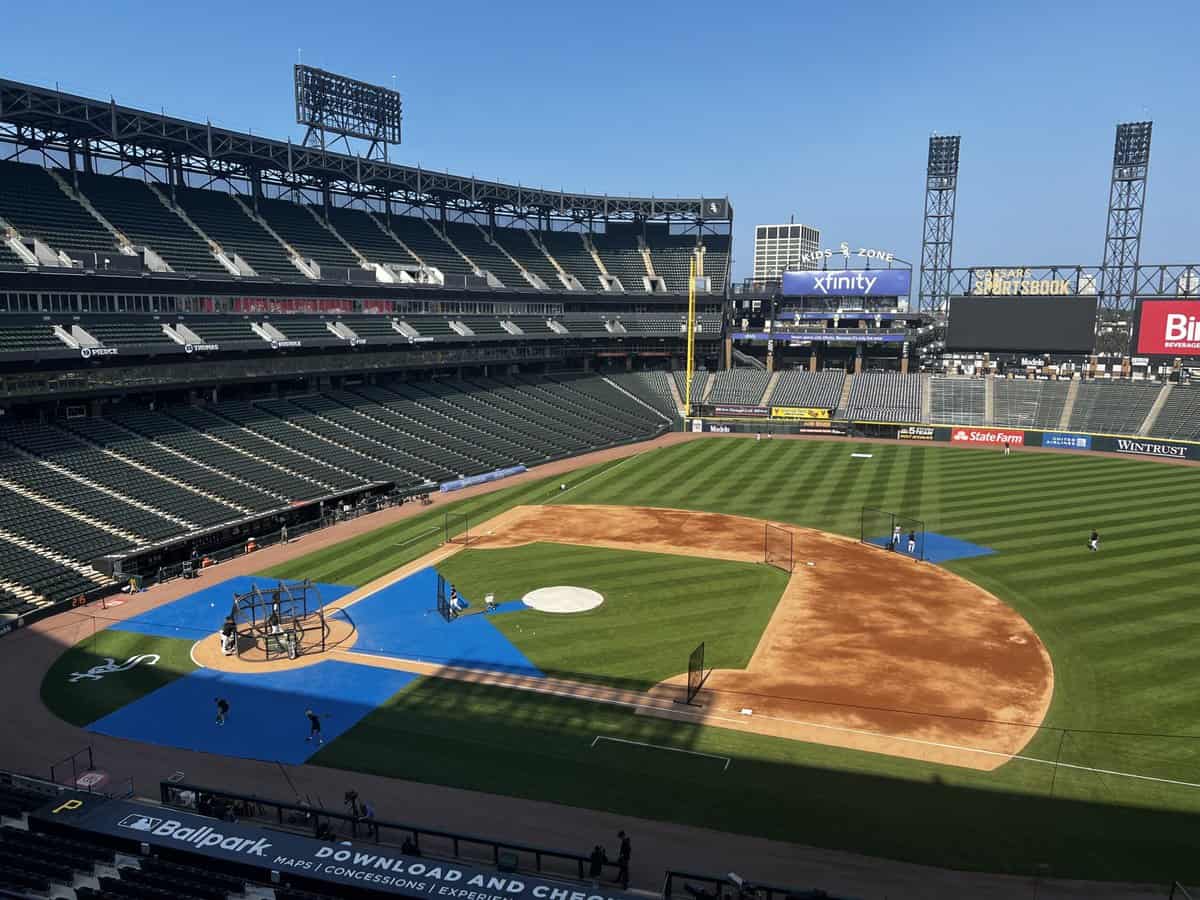When the White Sox designated Adam Eaton for assignment earlier this month, I mentioned that reflexive pessimism more or less charted the course for how that particular signing was going to work out at the moment the news broke in December.
The day before Eaton signed, the White Sox had traded for Lance Lynn. I had also run that move through the how's-this-gonna-fail test, going so far as to diagram it.
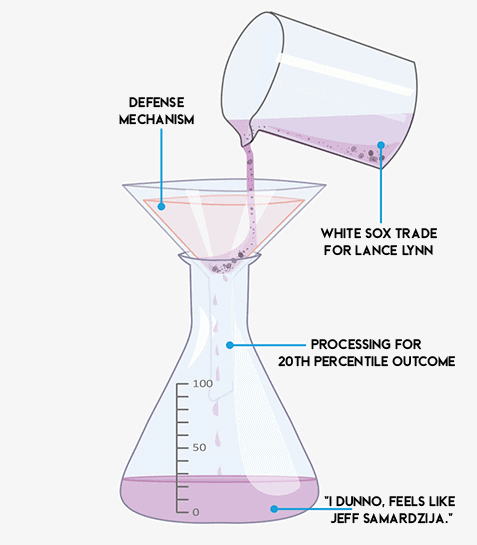
But while the trade resembled the shape of the ill-fated Jeff Samardzija deal, the comparison struck me as overly cynical. Lynn joined the White Sox off a couple of superior performances, and with timing that gave him a much better chance of making a difference, so while the White Sox traded multiple promising prospects for one year of a veteran workhorse, the comparisons pretty much ended there. Any concerns had more to do with relying on a pitcher in his 30s to remain at or near the top of his game for one specific year. That's just standard margin-for-error stuff.
Well, Lynn responded by leading the American League in ERA in the first half, and now he opens the second half with a two-year, $38 million contract extension with a team option for 2024. In between, every step along the way has avoided just about every mistake made during the Samardzija sequence.
The White Sox didn't stress Lynn's Indiana roots when they acquired him. They didn't call him a "Captain of Attitude" and try to establish him as a leader upon arrival. If they had an overwhelming desire to extend him before he even threw a single pitch for them, they didn't show it. The White Sox actually waited for cues this time before discussing the future, and like any healthy relationship, both sides saw it the same way when it was time to talk.
"Rick was like, 'Hey, what do you think about this?'", Lynn told A.J. Pierzynski and Adam Amin during the third inning of Fox's broadcast of the White Sox-Astros game. "I'm a veteran guy, so I wasn't worried about talking in the middle of the season."
"These things go fast when you're in the same ballpark when the first numbers come out, and we were. And then you look at the break we had with the All-Star break, so we were able to talk a little bit, and it was kind of an easy back-and-forth for about 24 hours.
"Next thing we know, we were right where we needed to be, and now we can just worry about the second half and go do it. If it didn't come together, then it was something we could've kicked down the line at the end of the season or into the offseason, but we were so close right away that it was such an easy fit. I enjoy it here, I enjoy this team and what we have going forward here, so I'm really excited about being here."
He put it even more succinctly in a conference call with reporters before the game: "There's no point in going into free agency if you know where you want to be."
* * * * * * * * *
This has the makings of an inflection point in the White Sox's rebuild ascent. Prior to this, Rick Hahn did what he could to establish a core by signing prospects to early/pre-career extensions, but his attempts to sell desirable veterans on the merits of the White Sox were mixed. He succeeded in landing guys like Yasmani Grandal and Liam Hendriks, but unsuccessful pursuits of nine-figure players gave their acquisitions an element of settling. The White Sox could land top-of-market players, but they had to be specific markets with lower ceilings like "closer" or "veteran catcher." When it came to the top of the overall market, they lacked the acumen and/or desire to actually compete.
The White Sox's commitment to Lynn doesn't break new ground financially. At a maximum of three years and $55 million, that's what they gave Dallas Keuchel two years ago. In terms of talent, though, what Lynn is doing -- on pace for a 5 WAR season in a contract year -- usually falls out of their price range. At the start of the second half, the only impending free-agent starters on track to command as much as Lynn are Kevin Gausman, Marcus Stroman and Max Scherzer.
If Lynn can get to the end of the season without issue, it'll still be worth monitoring this market to understand what kind of extra space this signing creates in their budget, which will firm up what exactly the White Sox gained by trading Dane Dunning and Avery Weems for Lynn at that specific point in time. Standard pitcher-health caveats aside, the White Sox have already addressed their biggest need from their offseason agenda with a premium player. Two of their starting pitchers were going to hit free agency this year. Now there's only one, and Michael Kopech is waiting in the wings for that remaining if Carlos Rodón heads elsewhere. I'm guessing the White Sox will extend Rodón a qualifying offer and see where the market takes him.
That leaves the Springfield Tire Fire in right field as the only area of need, but between now and the end of the season, we may have to recalibrate how we assess the White Sox's abilities to solve such problems. Andrew Vaughn and Gavin Sheets reflect a newfound appetite for experimenting with defensive positioning. With Sheets and Jake Burger, the White Sox can actually see immediate results from young hitters instead of an immediate and years-long adjustment process. If Lynn's experience is any indication, the White Sox might not have to try so hard to make themselves appealing to outsiders. And should Lynn help spearhead a run deep into October, there will be even fewer things about the White Sox that'll need to be said.
(Photo by Mike Dinovo.USA TODAY Sports)
